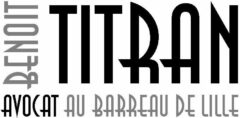
On 10 December 2020, the Paris Bar association Launched its Welcome and Respite program for lawyers under threat around the world.
At the September 11, 2020 the CNB proposed an action plan comprising 17 short- and medium-term mobilization and communication actions.
The aim is to provide effective support to lawyers at risk in the line of duty and to raise awareness among governments and civil societies about the need to act in support of endangered lawyers around the world.
On 25 November, the CCBE (representing more than one million of lawyers in 46 European countries) awarded its 2022 human rights prize to Ukrainian lawyer Nadia Volkova and the UNBA (Ukrainian national Bar association).
Every bar association, every lawyer’s school should get its part of responsabity in this cause.
These are occasions to remind us that this sad reality does not concern only our emblematic Iranian colleague Nasrin Sotoudeh, but also many lawyers around the world facing state authorities who choose to deny individual freedoms, human rights and the Rule of Law.
By its very nature, the lawyer’s practicing questions the legal framework defined by the state authorities.
Fundamentally, defending is also questioning the legitimacy of the legal system of a State, and each time, the tribunal or the court checks this legitimacy through the judicial response its provides.
The sustainability of the rule of law emerges from this judicial confrontation, supported and nourished by the defense of human rights and fundamental freedoms and subject to arbitration by independent and impartial courts.
But to contribute to a full functional judicial system, the exercise of the defense must be conducted by a professional whose independence and professional secrecy are guaranteed.
Combined with strict respect for his ethical and deontology rules, the independence of the lawyer guarantees citizens full freedom in the organization of their defense.
Always associated with strict compliance with ethical and deontology rules, absolute professional secrecy of the lawyer provides everyone an intimate and protected space in which they can question themselves without exposing themselves, and thus consider evolving.
It is an indispensable tool for human evolution, and therefore for social improvement.
All governments that want to give precedence to their authority over individual freedoms first ensure that the courts and judges are dependent and under the hierarchy of their power (including through the procedures for appointing and discipline), and then restrict the freedoms of action and speech of lawyers by limiting or even suppressing their professional secrecy and independence.
This takes most often the way of disciplinary or criminal proceedings against lawyers on a misappropriated basis (bans on meetings, various frauds and subversions), by a confusion between the lawyer and his/her client (for example, considering the lawyer of a person presented as a terrorist as himself or herself a terrorist) and by a solitary confinement of the lawyer being prosecuted without the possibility of organizing his/her defense (as if he/she were a prisoner of war).
Another way is a lack of adequate response (or no response at all) from the authorities when lawyers are threatened and abused by opponents of their clients or more often by unidentified individuals, especially when the cases they defend involve the interests of the state.
In these states, lawyers who choose to defend fundamental freedoms and human rights or who defend economic interests that differ from those of the country in which they operate are at risk of being banned from practicing in the best case, if not of attacks on their integrity, or even their own lives or families.
To be lucid, these issues are as much about human and fundamental rights as they are about business cases, and it can be both.
In this area, moreover, states that want to defend their economic interests may be very concerned and even democracies considered as strongly established can act in limiting or banishing practice or even just let threats happen with incredible violence.
In this way, the case of our colleague Steven Donzinger in the United States is also emblematic.
To be outraged as lawyers of the fate of our endangered colleagues in the world let us also remind ourselves of who we are, to recognize each other lawyers throughout the world, and by coming together on common values, to strengthen the defense of our mission and status in all human societies.
This subject is ultimately so identity-based that it should be the subject of a dedicated teaching in our law and lawyers schools.
Beyond indignation, by reverse reading the fate of endangered lawyers in the world, we identify more clearly the indispensable components of the status of Bar institutions and individual lawyers in the rule of law.
We want to help them, but in fact they have helped us first.
It is therefore our duty, in return, to reach out to them.
This institute created in 1984 the Global Observatory for Rights Defense and Violations of Lawyers’ Rights.
It is useful that this methodical, comprehensive and recurrent work over the past 40 years is brought to light in a context where these awareness are beginning to emerge as a central challenge of our profession.
